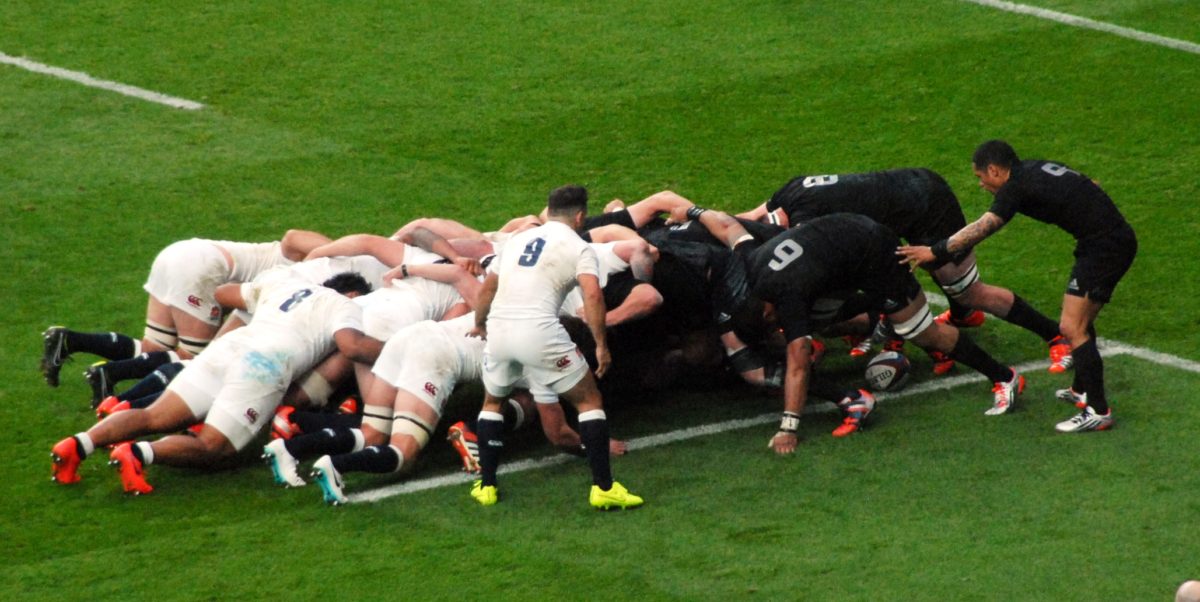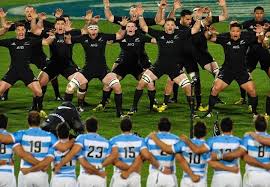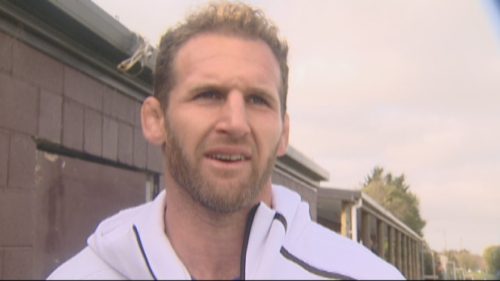The Tao is in everything. More fundamental than words, more fundamental than forms, the eternal interplay of yin and yang is one powerful way of understanding the reality we are presented with. As the Super Rugby season begins, and in a year of fixtures that contains a Rugby World Cup, we take a look at the Tao of rugby.
The flowing blitzkrieg of an All Blacks backline move is often the first thing a person sees when they are new to the game. It’s impressive because it’s high skill executed at high pace. It’s all very yang and masculine, because it’s fast and dynamic, but there’s another side to the game, because the backs can’t do anything without the ball.
The forwards might be slow, but without the ball the team can only really go backwards. So it doesn’t matter that these players are slow, as long as they are strong, because strength is the main factor that determines who wins a contest for ball possession. The forwards are therefore like the yin: underappreciated, but just as necessary as the rest.
In this sense, a rugby team is like a taijitu. The backs as yang, and the forwards as yin. Both are entirely necessary for the correct operation of a rugby team, because the backs can score points but have trouble winning the ball, and the forwards can win the ball but have trouble scoring points. Neither is superior to the other, and neither can be complete without the other.
There is a deep spiritual truth in this. One solution to the question of the meaning of life is just to play one’s role, whatever that should be. A prop might envy the fitness and speed of the backs, and a winger might envy the strength of the forwards, but at the end of the day all either can do is just to play their role.
The rugby ball, being shaped in such a manner as to prevent it being passed along the ground soccer-style, represents the very centre of the taijitu. This is the position that Taoists refer to as the “unwobbling pivot”, on account of that the rest of the system revolves around it. Without a ball that can bounce in unpredictable ways, there is no game of rugby.
This ball is a very chaotic element, as can be seen on every occasion when a high ball is allowed to hit the ground (and often when it isn’t). In this sense, it also represents Fortune. For a New Zealander of the 21st century, instead of saying “The Lord giveth, the Lord taketh”, we say “That’s just the bounce of the ball.” The sentiment is precisely the same.
These patterns within patterns are part of the reason why rugby is now more of a religion in New Zealand than religion is.
The purpose of religion is not anything to do with any spiritual insights that it may confer. This is merely a ruse. The real purpose of religion is to bind a society together by bringing all of the disparate groups together in a state of equality before something absolute. God knows no division of class or race, and therefore all are equal before God, whether rich or poor.
Coming together in the name of God is an extremely powerful tool for creating social bonds, but New Zealand can no longer attempt to do this in the name of Christianity. That tradition is dead, but it’s not the only way that Kiwis can come together as one.
Rugby also serves this purpose. Rugby serves to bring Kiwis together in a way that no religion or Government enterprise can. At an All Blacks game, one sits in the stand, and it doesn’t matter if the person next to you if of a different class or gender – you are there for the same purpose, to give your energy to the same spectacle. You are all equal before something greater: the ritualised warfare that is rugby.
All of this goes double for those who actually play the game. Because mainstream religion is not inspiring to New Zealanders, we have to learn our moral lessons elsewhere – and historically this has been on the sports field.
On the sports field, we learn that sometimes you win and sometimes you lose. Sometimes you play well and lose, and sometimes you play poorly and win. We learn that arrogance usually leads to a comeuppance of some sort. We learn that a hard tackle is no less hard because the person delivering it was white or brown, or because the person receiving it was rich or poor.
We learn that the bounce of the ball favours neither the international superstar nor the 8-year old. All are equal before the whims of the prolate spheroid, which is, to the Kiwi, the form of God, distributing blessings according to a pattern that cannot be understood by mere mortals. We learn to adopt the humility that is the only correct response to such an almighty force.
So when people say that rugby is a religion to Kiwis, they’re more accurate than even they might realise. Rugby is to us what Taoism was to the everyday folk of ancient China, both bonding the community together and instructing its members about the mysteries of life, luck and death.
*
If you enjoyed reading this essay, you can get a compilation of the Best VJMP Essays and Articles of 2018 from Amazon for Kindle or Amazon for CreateSpace (for international readers), or TradeMe (for Kiwis). A compilation of the Best VJMP Essays and Articles of 2017 is also available.




